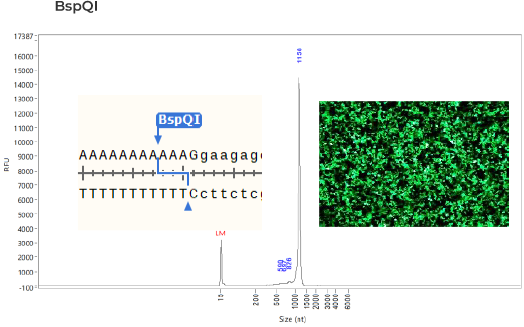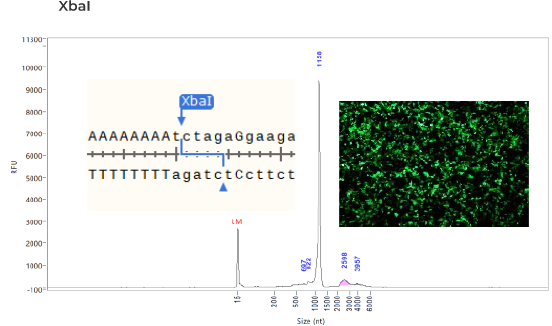Selecting the appropriate, high-quality restriction enzymes is essential for
the best IVT reactions and maximum mRNA output. Elements like the length of the enzyme
recognition sequence, the nature of the cleavage product, enzyme stability, and overall
quality can significantly influence your mRNA product and its yield. At GenScript, our
PhD-level scientists are on hand to guide and advise on your enzyme choices and address any
experimental uncertainties.
Figure 1. The circular mRNA template encoding eGFP was
linearized utilizing BspQI and XbaI Restriction Enzymes respectively. IVT mRNA was
subsequently produced from these linearized plasmids and examined for quality and protein
expression. 293T cells were transfected with 0.1 µg of the mRNA using the Lipofectamine 2000
reagent (Invitrogen). GFP expression was observed 48 hours after transfection. The data
indicates that the mRNA derived from the BspQI-linearized template exhibited roughly 1.9
times higher GFP expression compared to the XbaI version.















































